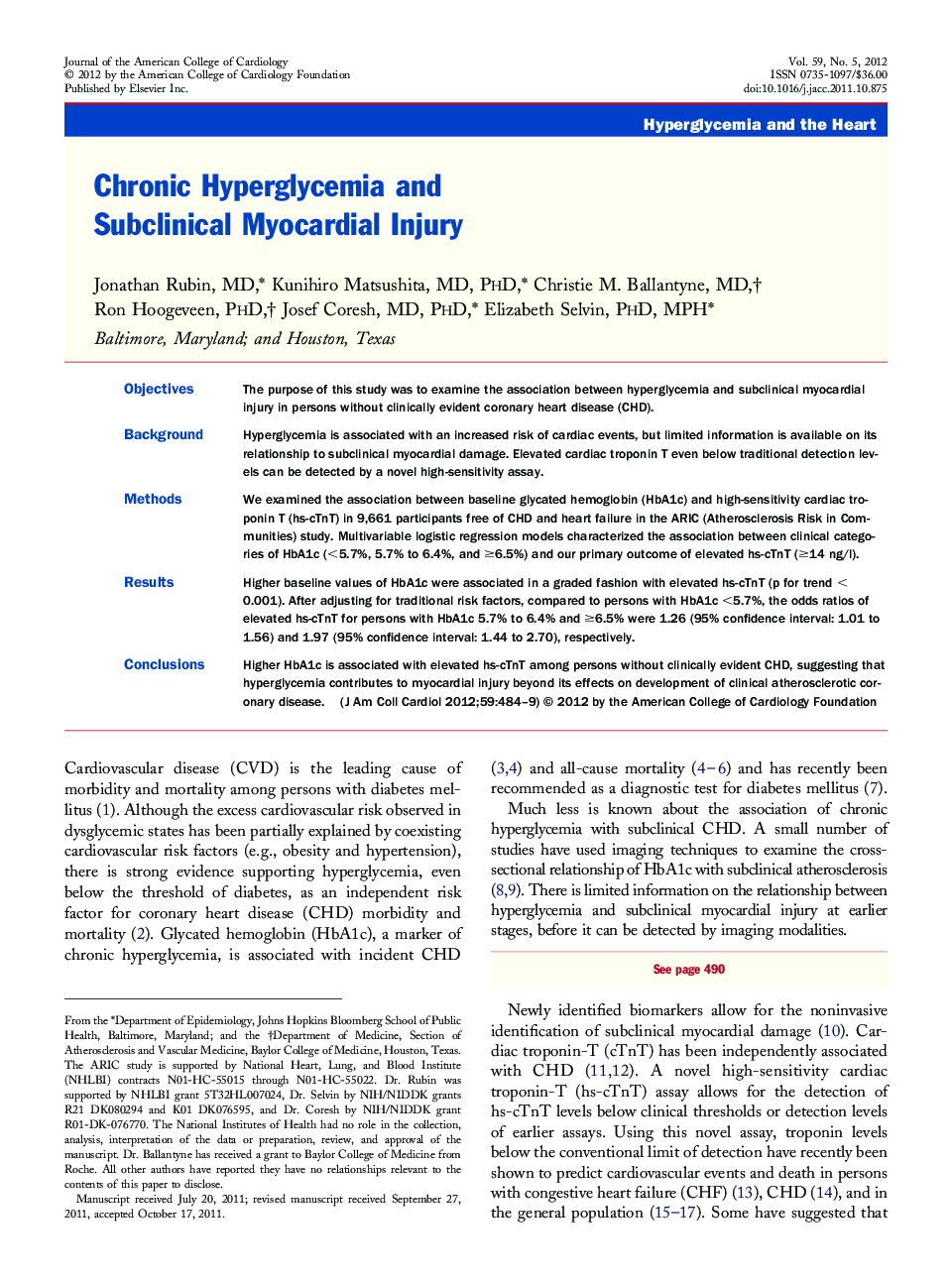| Article ID | Journal | Published Year | Pages | File Type |
|---|---|---|---|---|
| 2949325 | Journal of the American College of Cardiology | 2012 | 6 Pages |
ObjectivesThe purpose of this study was to examine the association between hyperglycemia and subclinical myocardial injury in persons without clinically evident coronary heart disease (CHD).BackgroundHyperglycemia is associated with an increased risk of cardiac events, but limited information is available on its relationship to subclinical myocardial damage. Elevated cardiac troponin T even below traditional detection levels can be detected by a novel high-sensitivity assay.MethodsWe examined the association between baseline glycated hemoglobin (HbA1c) and high-sensitivity cardiac troponin T (hs-cTnT) in 9,661 participants free of CHD and heart failure in the ARIC (Atherosclerosis Risk in Communities) study. Multivariable logistic regression models characterized the association between clinical categories of HbA1c (<5.7%, 5.7% to 6.4%, and ≥6.5%) and our primary outcome of elevated hs-cTnT (≥14 ng/l).ResultsHigher baseline values of HbA1c were associated in a graded fashion with elevated hs-cTnT (p for trend < 0.001). After adjusting for traditional risk factors, compared to persons with HbA1c <5.7%, the odds ratios of elevated hs-cTnT for persons with HbA1c 5.7% to 6.4% and ≥6.5% were 1.26 (95% confidence interval: 1.01 to 1.56) and 1.97 (95% confidence interval: 1.44 to 2.70), respectively.ConclusionsHigher HbA1c is associated with elevated hs-cTnT among persons without clinically evident CHD, suggesting that hyperglycemia contributes to myocardial injury beyond its effects on development of clinical atherosclerotic coronary disease.
